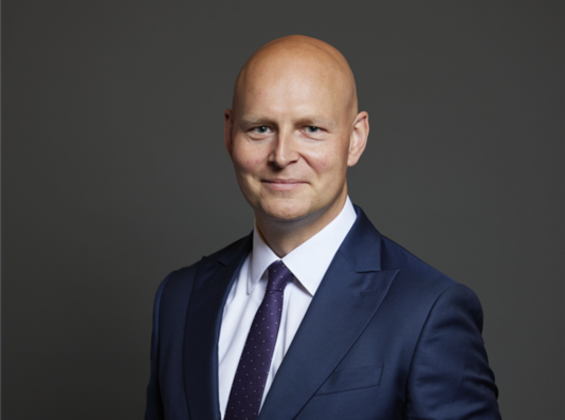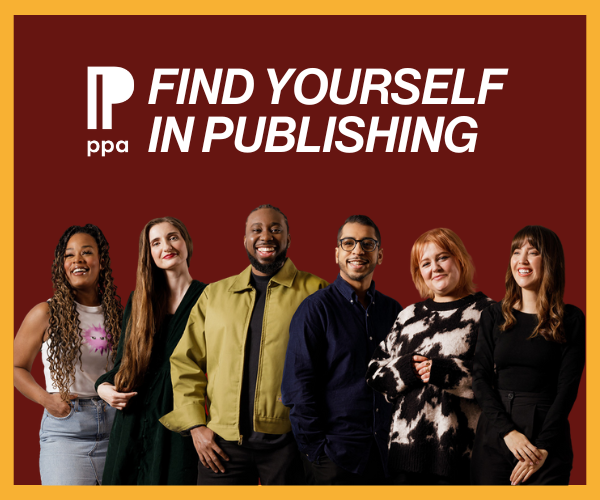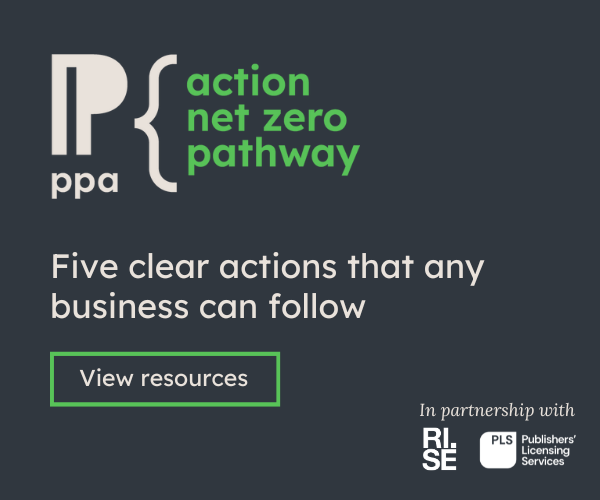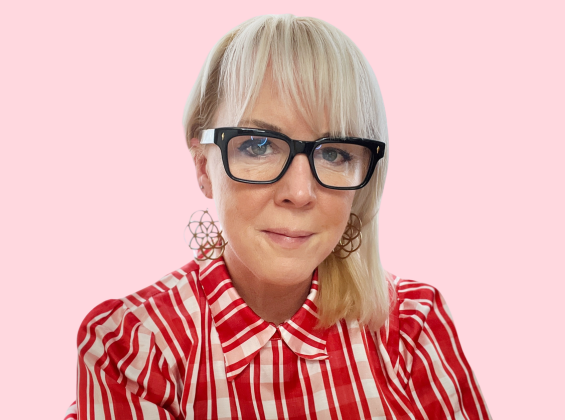Chart your career from the start to now.
I started my career, fresh out of completing a magazine post-graduate degree at Cardiff, as editorial assistant of Grazia. I worked my way up, saying yes to every opportunity, ending up on the features desk and then being asked to work up an idea for launching Grazia’s website. I sat in a room with a bunch of developers and we came up with the concept for Grazia Daily – a site dedicated to the fashion and beauty arm of the brand at that time. I edited that for a few years and then became Assistant Editor of Grazia, overseeing features and entertainment in print and for our digital operations (by that point social, digital and iPad). I was then asked to be the editorial lead on devising a new brand aimed to speak to younger AB women, which became TheDebrief.co.uk. I launched and edited that and remain very proud that we managed to give a voice to some of today’s most talented journalists. Then I went to The Telegraph as Deputy Lifestyle Director, overseeing fashion, beauty and luxury across all platforms. In 2018, I came back to Grazia as Editor, which was – in a word – surreal. I have always loved the brand so to return as Editor years later was a dream job. Working there previously helped in many ways as our essential ethos of serving a modern woman being multi-faceted and interested in both the high and low hasn’t changed: in fact, thankfully that’s now the norm in a world where you scroll through social media and see all sorts of topics discussed with the same fervour. But the fact I’d gone and created and then launched a digital brand from scratch, and delved into the fashion and luxury world at The Telegraph – as well as learning from their exceptional digital and data team – meant that when I returned to Grazia we were really able to focus on the brand as so much more than just a magazine.
How has your education, particularly your PPA accredited post-graduate course at Cardiff, impacted the journalist you are today?
Cardiff taught me the rigour of being a journalist: something that I think is crucial in today’s media landscape, where social media drives so much of the conversation. Legals, subbing, accuracy, the correct picture choice: these are all invisible elements if you like, but still absolutely crucial. I still draw on the magazine craft I learned there, too – whether that’s in working with my creative director on designing pages that draw the reader in, or with my deputy editor on coverlines that deliver a promise to our audience of ABC1 women. I also had it instilled in me that words matter; that journalism is about breaking stories and taking stories on. So, for all the power of the hot takes we commission and write at Grazia, we’re also committed to on-the-ground reporting, as you saw in our recent cover feature, profiling four women on the frontline of the war in Ukraine. But above all, my biggest lesson from my entire education was to be curious; to ask questions and seek out answers. The greatest privilege of journalism is being allowed to do that on behalf of your audience. It’s being nosy, but with a purpose!
What is your advice to young journalists trying to find work experience post-pandemic? What do you think publishers can do to make work experience more of a priority as part of their diversity and inclusion initiatives?
I’d like to think the pandemic has made it easier for workplaces to improve the diversity of people interning and doing work experience with them, by the virtue of their no longer having to be in London where many can’t afford to be. But it’s still an incredibly difficult industry to break into, and more needs to be done by publishers to help break down barriers. My advice to anyone wanting to find work experience is to be strategic. Work out the publications you want to write or work for and get to know them – and the people who work there – really well. Then don’t be afraid to approach those people you admire and ask for help; often now people are much more likely to jump on a Zoom call with someone. Think about what value you can add to them and come brimming with ideas. Use your youth to your advantage here. Busy editors know they should be all over upcoming trends and platforms but aren’t always, so come armed with knowledge of what their competitors are doing and what they could do better. Ideas, enthusiasm and curiosity are still what count.
The Grazia covers for International Women’s Day featured the stories of four different women in Ukraine and how they were navigating the invasion – how did this idea come about so quickly?
Since Grazia transitioned to become fortnightly we’re able to shoot a lot more covers and create event issues like a monthly would. However, since we still go to press on a Friday before we hit newsstands the following Tuesday, we’re also able to respond quickly when the situation demands. I think that ability to pivot quickly to the public mood is what’s resulted in consecutive circulation growth: up 7.5% in the JD 2021 ABCs.
The war in Ukraine felt like another of those moments we had to throw out everything we’d planned. We knew our audience were concerned about seeing a new war in Europe unfold, and I believed that they would expect us to devote the space to tell the stories of women like them caught up on the frontline. So I asked the team to do what they’ve done so many times since the pandemic began and find the right way for Grazia to approach an unprecedented event. We found ourselves grappling with new concerns: how could we send a photographer across Kyiv safely? Was it right to show a woman holding a gun on the cover? But we managed to find four women who were willing to share their stories of grief and terror to help tell the women of the UK that they needed them to stand with them.
A modern fashion magazine like Grazia has to navigate the opposing worlds of influencer culture and sustainability, how editorially do you go about balancing these interests for your readership?
In terms of fashion, one of the big trends we saw come out of the pandemic for our audience was a desire to shop mindfully. Having looked at their wardrobes gathering dust, 42% of readers told us in our 2021 Gamechangers research that they were going to shop for something worthy of investment. That could mean a classic, which is why we’ll be doing our second Forever List later this year – where we team up with industry experts Lyst to rank the 15 timeless pieces our audience invested in this year. But mindful consumption doesn’t have to mean shelling out on designer pieces: it’s as much about seeking out the very best item, which is why the Grazia edit remains so important. Whether it’s via our Smart Shopping biannual issue, talking about what to spin, sell or store, or the Interiors and Beauty awards, we take our reputation for recommending brands really seriously. We’re also about to announce a sustainability editor-at-large who’ll be actively helping educate our audience on how to make informed purchases across fashion, beauty and interiors.
As an Editor how do you stay abreast across fashion, beauty, culture, and entertainment moments?
I’m lucky that I have a brilliant team, who are specialists in their areas, so I rely on them a lot! Because you’re right, our readers are ABC1 women – we have the highest AB proportion of readers in the glossy market – who are smart, savvy and stylish but also time-poor, so look to Grazia for recommendations because they trust our edit of everything from what to buy to what culture they should be consuming now.
So yes, being an editor of a magazine like Grazia is about being constantly switched on. I always encourage journalists starting out to be prepared to read a lot, to consume a lot of content – whether that’s magazines, newspapers, websites, podcasts, Netflix, or getting lost in TikTok. I’m always looking at what our competitors are doing, but I’m also often inspired by other magazine brands outside the lifestyle space. I was chair of the British Society of Magazine Editors last year and remain on their committee and loved seeing examples of brilliant innovation and publishing through their awards, events and social channels, too.
Do you have a favourite issue of Grazia in the three years you’ve been Editor?
The Grazia covers I’m most proud of are the NHS medics we photographed in the car parks of their hospitals the day the first Covid lockdown was announced. We’d just sent the entire team home with their office chairs and laptops in taxis and didn’t even know if we could put a magazine to press remotely, let alone pull off an ambitious cover story in four days, with rapidly changing restrictions. But the team pulled together and we did.
At the time, those covers were considered a bold pivot for a women’s magazine, but they felt instinctively right as Grazia’s USP has always been its newsiness and ability to talk to a smart, informed, modern woman who is just as interested in current affairs as she is in style. In that week, as we all struggled to cope with the enormity of Covid, turning the covers over to the women in the frontline fighting to save us all was an emotional moment.
What’s on your radar?
It’s been incredible to watch brands wake up to the importance of using their platforms for good over the past few years – whether pivoting to help the Covid efforts, supporting the Black Lives Matter movement, or, recently, pulling out of Russia to stand with Ukraine. And to see that this is happening because there’s a consumer demand.
It’s certainly true that the Grazia woman is now more engaged in social issues than ever before – and feels a responsibility to make positive change. In our latest research, 85% of our audience said that brands need to do more than a ‘trend supporter’ when it comes to causes and take real action.
That’s why at Grazia we remain unafraid to tackle the topics that matter to our audience in bold ways and are committed to using our platform to drive diversity and equality beyond the pages. I was particularly proud of the way our audience galvanised around our recent petition launched by our parenting offshoot, @thejuggleuk, calling on the Government for an independent review into the affordability of childcare. Over 113,000 signed in less than 72 hours, triggering a debate in Parliament. It’s not a campaign we’ve won yet but being able to fight alongside our passionate, influential audience for something that feels so meaningful is, to me, what being at the helm of a women’s magazine brand today is all about.
What magazine do you stockpile?
I’ve just taken out a subscription to The Week Junior as my seven-year-old is asking me questions about the world that I definitely don’t feel equipped to answer! So far, I’ve been really impressed with their skill at explaining complex issues simply without patronising children. And making magazines feel fun for kids, without tonnes of plastic attached to the front.









